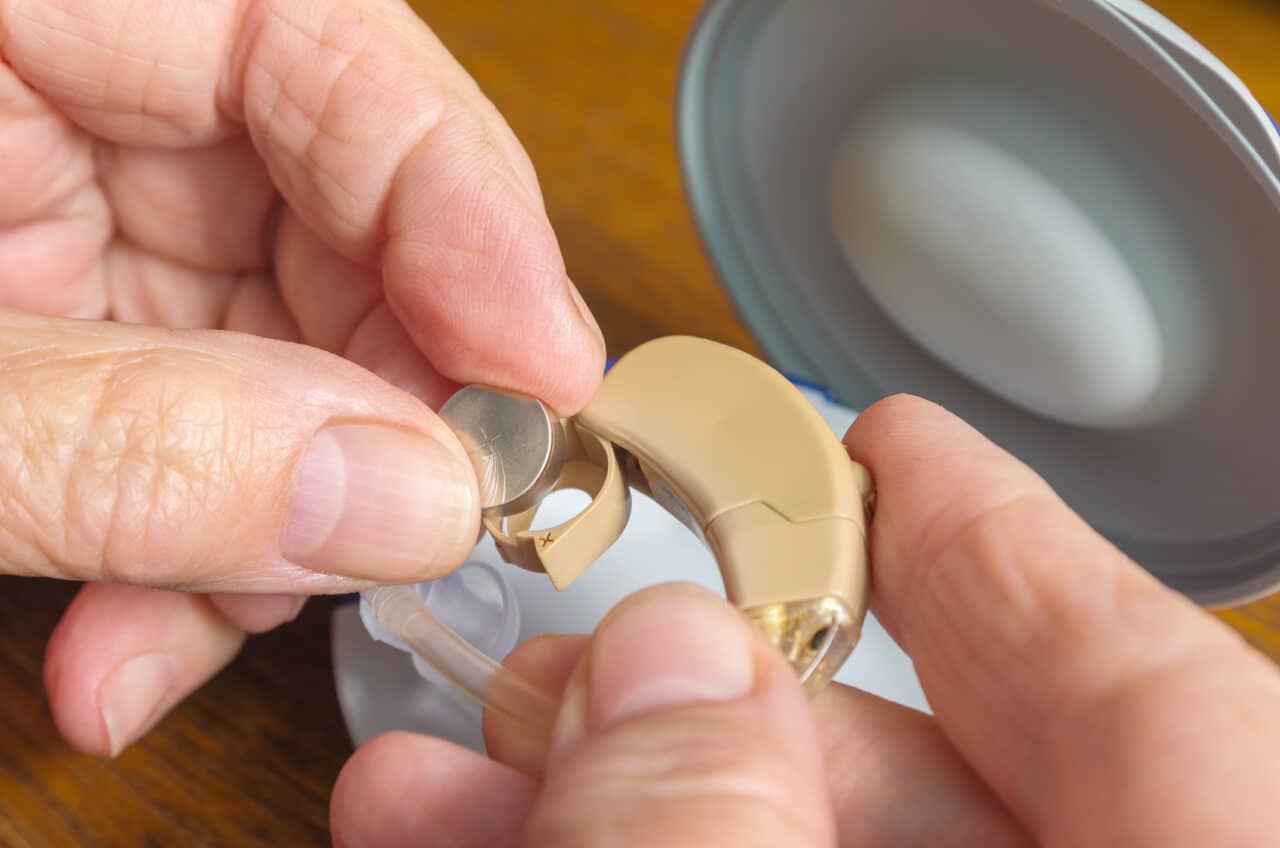Hearing aids are a game changer for people with hearing loss. They may so many situations easier, from enjoying your granddaughter’s dance recital to having a relaxing conversation with your spouse while out to eat at The Barley Hound.
The last thing you want when out at these important events is for your hearing aids to lose power. This is why it’s so important to know all the tips and tricks for making your hearing aid battery last as long as possible.
Ways To Extend Hearing Aid Battery Lifespan

- Store in a cool, dry place. Keep your batteries in a room-temperature environment away from any excess heat or moisture. Do not put them in the refrigerator! Despite the rumors, keeping your batteries cold does not make them last longer and actually causes damage instead.
- Don’t open the battery package until you plan on using them. This ensures they won’t come into contact with metal objects like keys if they are loose in your purse or pocket.
- Let the battery sit out after removing the plastic tabs. Zinc hearing aid batteries are air activated. After removing the sticky tab on the back of the battery, let them sit out for five minutes before inserting them into your hearing aid. This can extend your battery’s life by hours and even days!
- Keep the battery compartment open when hearing aids aren’t in use. When not using your hearing aids, turn them off and keep them somewhere safe and dry. Also, be sure to leave the battery door open. This saves battery life and helps to remove excess moisture from your battery and prevent corrosion.
Struggling With Your Hearing Aid Batteries?
Knowing when to change your battery and how often to make sure you’re getting the most out of them takes some practice. Not to mention that due to their size, it can sometimes be difficult to change them out, especially if you’re away from home or in environments with poor lighting.
A 2021 survey of hearing aid users found several common challenges related to changing hearing aid batteries. These included “limited information on hearing aid batteries, physical/sensory challenges to the act, and the social impact of having to change hearing aid batteries.”
If you’re struggling with any aspect of hearing aid battery usage, reach out to your hearing specialist. They can offer additional insight and guidance to make sure you’re using your batteries wisely and getting the maximum benefit from your hearing aids.
For more information or to schedule an appointment, call the experts at Prescott Ear, Nose, Throat & Allergy today.
